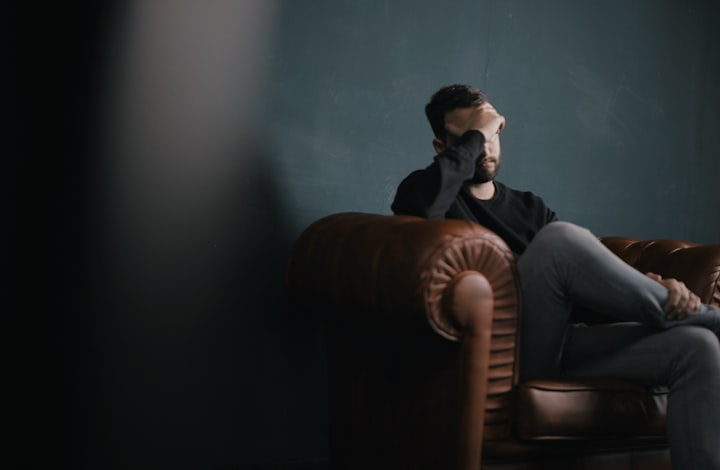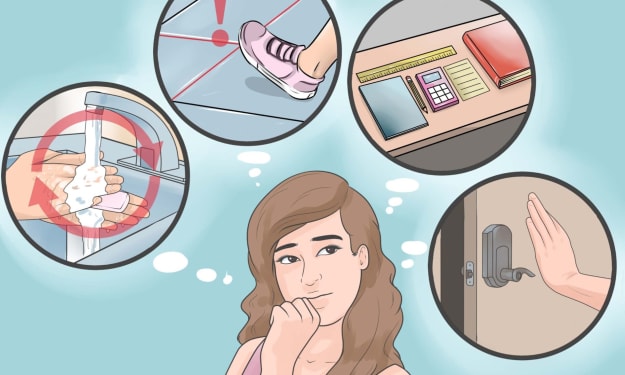OCD and anxiety: How to differentiate between the two and find the right treatment
OCD and anxiety: How to differentiate between the two and find the right treatment

Obsessive-compulsive disorder (OCD) and anxiety disorders are two of the most common mental health conditions worldwide. While they share some similarities, they are distinct conditions that require different forms of treatment. This article will explore the differences between OCD and anxiety disorders, the importance of seeking professional help, and how online therapy can be an effective treatment option for anxiety disorders. Additionally, we will provide guidance on how to find the right therapist in Mumbai.
Understanding OCD and Anxiety Disorders
OCD is a type of anxiety disorder characterized by recurring, intrusive thoughts, images, or impulses (obsessions) that cause significant distress and anxiety. To alleviate this anxiety, individuals with OCD perform repetitive, ritualistic behaviors or mental acts (compulsions) that are excessive, time-consuming, and interfere with daily life.
Some common obsessions include:
- Fear of contamination or dirt
- Doubts about safety or harm
- Fear of causing harm to oneself or others
- Sexual or religious obsessions
- Symmetry or orderliness
Some common compulsions include:
- Excessive cleaning or hand washing
- Repeatedly checking appliances, doors, or locks
- Counting, organizing, or arranging objects
- Mental rituals, such as praying or repeating phrases
Anxiety disorders, on the other hand, are a group of conditions that involve excessive and persistent feelings of fear, worry, or panic in response to specific situations, objects, or thoughts. Anxiety disorders can be classified into several types, including generalized anxiety disorder (GAD), panic disorder, social anxiety disorder, specific phobias, and separation anxiety disorder.
Some common symptoms of anxiety disorders include:
Excessive worrying
Restlessness or feeling keyed up
Irritability
Muscle tension
Sleep disturbances
Avoidance of feared situations
While OCD and anxiety disorders share some features, there are several key differences between them. For example, in OCD, compulsive behaviors are driven by obsessive thoughts, while in anxiety disorders, symptoms are triggered by specific situations or objects. Additionally, individuals with OCD may be aware that their obsessions and compulsions are irrational, while those with anxiety disorders may believe their fears are realistic.
Finding the Right Treatment for OCD and Anxiety Disorders
If left untreated, OCD and anxiety disorders can significantly impact a person's daily life, relationships, and work. Fortunately, effective treatments are available for both conditions.
For OCD, the most effective treatment is cognitive-behavioral therapy (CBT), specifically exposure and response prevention (ERP). ERP involves gradually exposing the person to their obsessions and preventing them from engaging in their compulsions. Over time, the person learns to tolerate the anxiety triggered by their obsessions and reduces their reliance on compulsive behaviors.
For anxiety disorders, treatment depends on the specific type and severity of the condition. CBT, particularly cognitive restructuring and exposure therapy, is the most effective form of treatment for most anxiety disorders. Medication, such as selective serotonin reuptake inhibitors (SSRIs), may also be prescribed in some cases.
In recent years, online therapy has become an increasingly popular and accessible option for individuals seeking mental health treatment. Online therapy involves meeting with a licensed mental health professional over a secure video conferencing platform, such as Zoom or Skype.
Online therapy offers several benefits for individuals with anxiety disorders, including:
Convenience: Online therapy allows individuals to attend therapy sessions from the comfort of their own home or office, eliminating the need to commute or take time off work.
Accessibility: Online therapy is particularly beneficial for individuals who live in remote or rural areas where mental health services may be scarce.
Privacy: Online therapy provides a level of privacy and anonymity that may be appealing for individuals who are hesitant to seek treatment in person.
Cost-effective: Online therapy is often more affordable than traditional in-person therapy, making it an accessible option for individuals with limited financial resources.
It is important to note that online therapy is not suitable for everyone, particularly individuals with severe mental health conditions that require intensive or emergency treatment. However, for many individuals with anxiety disorders, online therapy can be an effective and convenient treatment option.
Finding the Right Therapist in Mumbai
If you live in Mumbai and are seeking treatment for OCD or an anxiety disorder, it is important to find a qualified mental health professional who can provide evidence-based treatment. Here are some tips for finding the right therapist in Mumbai:
Ask for referrals: Ask your primary care physician, friends, or family members for recommendations. They may know of a reputable mental health professional in your area.
Search online: Use online directories such as Psychology Today or GoodTherapy to search for mental health professionals in Mumbai.
Check credentials: Ensure that the mental health professional you are considering is licensed and has the appropriate training and credentials to provide treatment for OCD or anxiety disorders.
Look for evidence-based treatment: Look for a mental health professional who uses evidence-based treatments, such as CBT or exposure therapy, for OCD or anxiety disorders.
Consider online therapy: If you are unable to find a qualified mental health professional in your area, consider seeking online therapy from a licensed professional in another location.





Comments
There are no comments for this story
Be the first to respond and start the conversation.